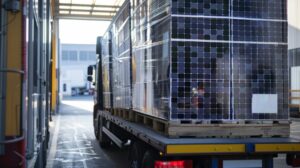Australia solar lacks corporate muscle
In a visit to California last year I interviewed the head of the energy division of the utilities regulator, and we discussed the incentives offered to rooftop solar. California currently offers a 1:1 net tariff, which means that solar households get as much for the electricity they export as they pay for the electricity they import. The utilities hate it and want it wound back, and the regulator has some sympathy with their position. Why don’t you do it, I asked. Because the solar industry is too powerful, he replied.
He’s right. Solar is a powerful industry in California, comprising multi-billion dollar companies such as SunPower, SolarCity, Sungevity and many others. It is an industry supported by the likes of Google, Apple and Tesla, and has the backing of the major banks such as Goldman Sachs, Bank of America and others. Warren Buffett and the country’s biggest generation companies are significant investors. When California governor Jerry Brown addressed a solar conference in San Francisco last July he told them: if anyone gets in the way of the solar industry, I want to know about it.
California, like the most progressive states in Australia – South Australia, Tasmania and the ACT – is able to be this way because it has virtually no fossil fuel industry to speak of. Contrast this with Australia, where the solar industry is disparate, and fossil fuel interests have long been powerful, and now dominate thanks to conservative government in the major states and in Canberra who are convinced that their ideologies, their business interests, and their take on climate science align.
The recycling of old fossils
The head of the newly constituted renewable energy target review panel, Dick Warburton says he is no “denier”, he just doesn’t believe any of the science that says human activities contribute to climate change. And he’s rather proud of his position. Asking someone like Warburton to review a renewable energy policy would be like appointing a flat-earther to organise a round-the-world trip, or asking a Creationist to design a science syllabus, or to appoint an Institute of Public Affairs policy advisor to the Human Rights Commission. What? Oh.
In any case, it makes Warburton a perfect choice to head Tony Abbott’s review of the renewable energy target. The addition of former ABARE chief Brian Fisher, former Verve Energy CEO Shirley In’t Veld, and the housing of the secretariat within Abbott’s office will ensure that it does not sway too far from the script.
There are two things that we can be certain of about the RET now. One is that the 41,000GWh target by 2020 will not stay in place, so the anticipated development of wind farms and solar farms will be delayed. The other certainty is that the RET will not be canned altogether, because that would invite too much legal action. But there is plenty of scope to effectively bring large-scale, and even some small-scale development to a halt, with no other motivation other than to protect the interests of incumbents and delaying the inevitable.
EnergyAustralia plays the blackout card again
EnergyAustralia boss Richard McIndoe will be leaving his job pretty much as he started it, raising the threat of blackouts caused by environmental policies such as the carbon price and the renewable energy target. The Australian reported this week that EnergyAustralia, the owner of some particularly dirty brown coal generators in the Latrobe Valley, had (again) raised the prospects of electricity blackouts if more renewables were deployed and demand continued to fall. Why? Because of the closure of the Pt Henry smelter and yet another reduction in demand for struggling generators.
EnergyAustralia’s reasoning is that too much capacity when it’s not needed means too little capacity when it is needed. Get it? They would have us believe the falling prices and diminished returns will cause all generators to suddenly exit the market. Such nonsense has already been firmly dismissed by the likes of Ross Garnaut, and even Origin Energy CEO Grant King, who note that as soon as one or two generators exit, the market will rebalance. Still, it seems that in this debate anything goes. It is a rent-seeker’s paradise.
King of the present, but what of the future?
Grant King is always a fascinating interview. Whether you agree with him or not, he brings an interesting perspective to the debate. Right now, he is playing a major role in two controversial moves – to slow down the installation of renewables, and to speed up the drilling of coal seam gas. What I found most interesting in our interview with the Origin boss were his comments about changing technologies and business models.
King says technologies come and go, and they move slowly and quickly. The petrol engine is still alive and well, he says.
But I wonder. The internet, digital photography and mobile phones were a long time coming. But when their impact took effect, it was sudden and decisive. It provided technology that essentially “democratised” the delivery and use of those technologies, and swept long-standing models aside.
King is probably right to say that in the world of energy, there is no one technology that will tip the scales. But perhaps he underestimates the ability of new players to put those links together. On the flip side, regulatory protection will be the last resort of the incumbents. That’s another big contrast with what occurs in the US, where regulators appear to have consumers as their primary concern, and what occurs in Australia, where regulators appear to think they exist to protect vested interests. King speaks with the confidence of a man who believes he has his bases covered.
Abbott’s Energiewende
Still, I’m not sure that Origin Energy, EnergyAustralia, or even AGL Energy, understand the attraction that these new technologies, particularly rooftop solar and storage, and smart appliances, will have with their consumers. Despite the predictions of the CSIRO, and many others, they are still convinced that consumers are an apathetic lot, and as long as electricity prices do not rise much further, then their audience is captured.
But there is one weakness to that argument. As the number of solar households increases, more people – and business types – are noticing the difference between the wholesale market price of electricity, which is at a record low of around 4c/kWh, and the retail price of electricity, which is at record highs of 30c/kWh. The cost is much more for some businesses, and for some customers on time of use tariffs.
That is sparking a lot of questions about electricity pricing, and providing a mighty incentive for other players to come up with alternatives that can by-pass the locked in costs and deliver electricity at far cheaper rates. It’s a classic leveraged opportunity. We’ve heard of some fascinating financing and business models to unlock this opportunity, and the big boys (banks) are entering the game. Community energy, in many different guises, will become a compelling offering. Abbott’s protection of incumbent businesses may succeed in the short term, but it is just as likely to galvanise a new movement that will prove unstoppable.







